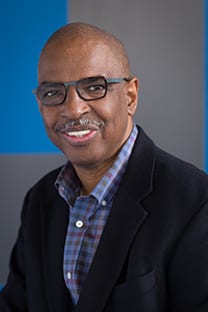Memphis and Shelby County allowed more non-essential businesses to reopen on Monday (May 18) after weeks of closure due to coronavirus (COVID-19).
Phase 2 Back-to-Business directives classify business types permitted to reopen. The plan also allows social gatherings of up to 50 people, up from 10 in Phase 1.
Black-owned businesses have been hit hardest amid COVID-19 – some may close permanently without supportive clientele.
Hair and nail salons, barber shops, tattoo parlors, health clubs, gyms, tourist attractions, contact sports facilities and other non-essential services requiring closeness must still follow safety guidelines.
Restaurants and bars, and non-essential businesses named above may now operate at 50 percent capacity, up from 25 percent in Phase 1.
All reopening businesses must comply with industry-specific safety regulations dictated by the State of Tennessee.
Physical distancing at six feet apart, washing hands with soap and water and disinfecting surfaces are standard safety precautions.
Health experts strongly advise wearing cloth masks in public places to avoid spreading the highly-contagious (and potentially deadly) virus.
Shelby County Health Department officials advise businesses to make appointments and post signs to inform the public on virus prevention.
“We’ve always been an appointment-only full-service nail salon,” said “Wynter,” owner of Polish Girl Nail Café, 2852 Poplar Ave. She prefers to go by her first name only.

“We operate above state regulations, our clients appreciate this.”
Wynter has owned her Memphis salon for 10 years. She began her nail business in Chicago.
“Most black nail salons are walk-in, but there’s no way they have adequate time to properly sanitize. Now, all will be on the same page.”
Polish Girl Nail Café won’t reopen until mid-June to undergo business adjustments. Updates will be posted at: www.polishgirlnailcafe.com.
Black business owners are hopeful that clients will feel comfortable returning to essential and non-essential businesses amid COVID-19.
Signs point to renewed interest.
“I’ve seen more traffic this week versus two weeks ago,” said Todd Brooks, MD, owner, Mid-South Wellness Clinic for Men, 6005 Park Ave.

His clinic returned to full- time operating hours on Monday. The office operated half-days for a month to limit disease risks.
Dr. Brooks keeps hand-sanitizer and Lysol Spray on hand to sanitize door knobs, counters, wait-room furnishings and even magazines.
“Patients use our disinfectants more now because of the pandemic. We also give surgical masks to our patients who want or need one.”
Dr. Brooks says he’s somewhat disappointed in fellow African-American physicians locally in terms of the response to COVID-19.
“In the past, local physicians were more engaged with the community, providing information through presentations and media interviews.”
After completing a face-to- face consultation, Dr. Brooks said he has performed more Tele-Health services (patient appointments using Zoom technology or the phone).
He has ordered 100 more coronavirus tests to prepare for a potential rise in cases and strongly advises frequent hand washing.
Other essential minority and women-owned business enterprises (MWBEs) that remained operational have practiced safety guidelines for both employees and clients.
“We allowed our most vulnerable employees to work- from-home,” said Jimmy Tucker of Self+Tucker Architects.

The 24-year-old MWBE at 480 Dr. M.L.K Jr. Drive employs 20 staffers and will celebrate its 25th anniversary in September.
“Employees in the office practice physical distancing and wear masks when feasible.”
The full-service architectural, interior design and urban planning firm is considering safer materials and structures as new construction continues in Memphis and beyond.
“In general, we’re looking at materials that can be easily cleaned that are less susceptible to germs, including carpet materials,” said Tucker.
Self+Tucker is creating more separation in designs through enclosed cubicles with higher dividers between desks.
The firm is also reviewing ventilation systems that circulate more fresh air.
“For a hostel we’re designing, we’re considering the comfort level for people when they come. From a design perspective, we have a different mindset on how to do business.”
For the broader small black business community, Tucker said good information is being developed through trade associations to help firms stay afloat during the pandemic.
“We must seize opportunities when something negative happens. We can be flexible since there are no layers of management where we can’t easily make change.”
Tucker also stressed the importance of forming bank relationships since loans granted and dispersed were not necessarily equitable.
“Despite that, we must look for ways to change our businesses.”
According to the Shelby County Back-to-Business plan, Phase 2 reopening will last longer than Phase 1 before moving to Phase 3, the last part of the reopening plan.
Phase 2 was determined by 14 days of reduced COVID-19 risks according to a variety of data categories and approved by Shelby County health experts.
“We’ve made significant progress, which allowed us to move to phase two today (Monday), but we continue to have work ahead of us, particularly focusing on our most vulnerable populations,” said Dr. Alisa Haushalter, Shelby County Health Department director during a press briefing.
“The last phase of the Back-to-Business plan includes large gatherings of as many as 250 people,” said Shelby County Mayor Lee Harris.
“That’s why we plan to be in this phase, Phase 2, for the next 21 days, not 14 days (like Phase 1). We will move forward, but we will move forward carefully and responsibly.”
(To view the entire Back-to-Business plan for Memphis/ Shelby County, visit: https:// backtobusiness.memphistn.gov/.)





